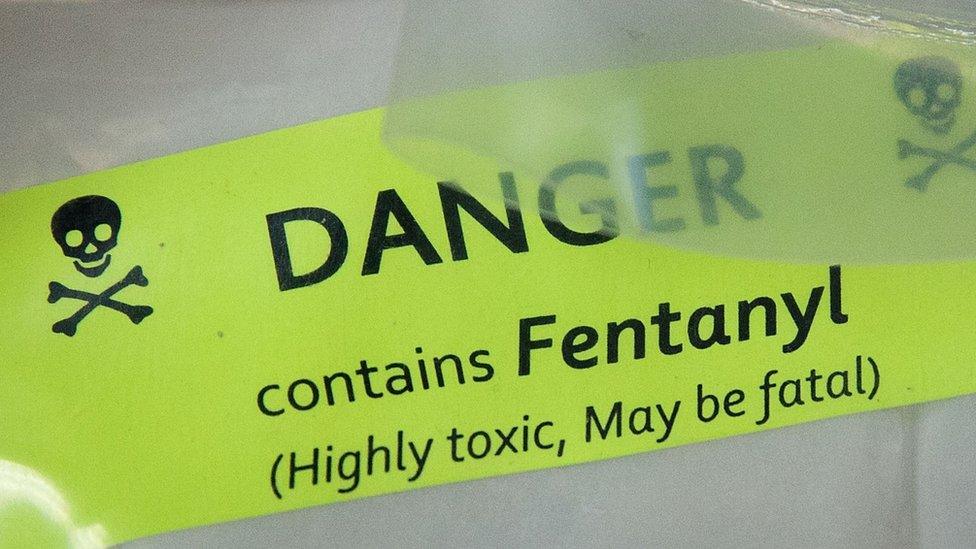Getting heroin in Belfast as 'easy' as cigarettes
- Published
- comments
'You feel like a piece of dirt on the ground' - a Belfast heroin addict
The number of drug users trying to access heroin addiction services in Belfast has risen significantly.
A user told BBC News NI that getting heroin in the city was as easy as buying cigarettes.
A councillor in Belfast who works with drug users said people will die if waiting lists are not shortened.
"I believe it's gone beyond epidemic," SDLP councillor Paul McCusker said, adding that he believes heroin addicts are being forgotten about.
"Our health trusts need to step up now and deal with this before we see more deaths," he said.
The waiting list for heroin users in Belfast to get on to a substitute prescribing programme stands at a minimum of 29 to a maximum of 38 weeks.
The programme allows addicts to move from heroin on to methadone in the hope that they will reduce their usage and eventually stop using heroin altogether.
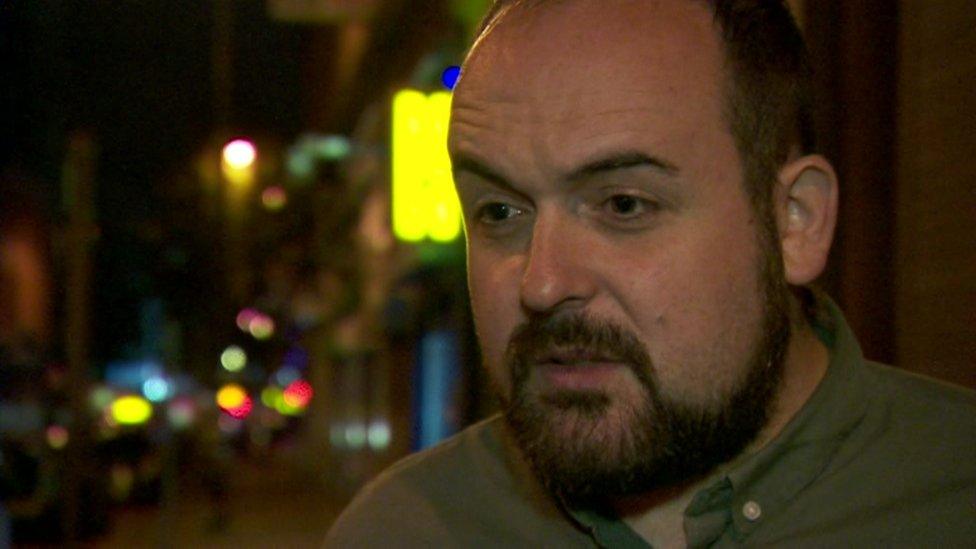
SDLP councillor Paul McCusker said it appeared "a door was being closed" on heroin addicts
The Belfast Health and Social Care Trust said there had been a rise in demand in the past two-to-three years and that this had increased in the past six months.
Users have told BBC News NI that waiting this length of time to get on to that potentially life-saving programme has had effects on their mental health.
"I fear that if I don't get onto this programme I will inject one day and not wake up," James said.
'Proper epidemic'
He said getting heroin in Belfast was "as easy as getting a packet of cigarettes".
"It's simply ringing a number," he added.
"At the minute it's absolutely everywhere, Belfast is becoming a proper epidemic."

Life on the list
James, from Belfast, has been addicted to heroin for two years and just two weeks ago he took an overdose.
He told BBC News NI his addiction started by smoking heroin, which later led to injecting the drug and now he injects anything between one and four bags a day.
"I've seen a lot of people overdose, I've seen people that you'd think would never go anywhere near the drug and they're completely hooked on it now," he said.
James has been trying to get help with his addiction since last year and meets a drug outreach worker several times a week.
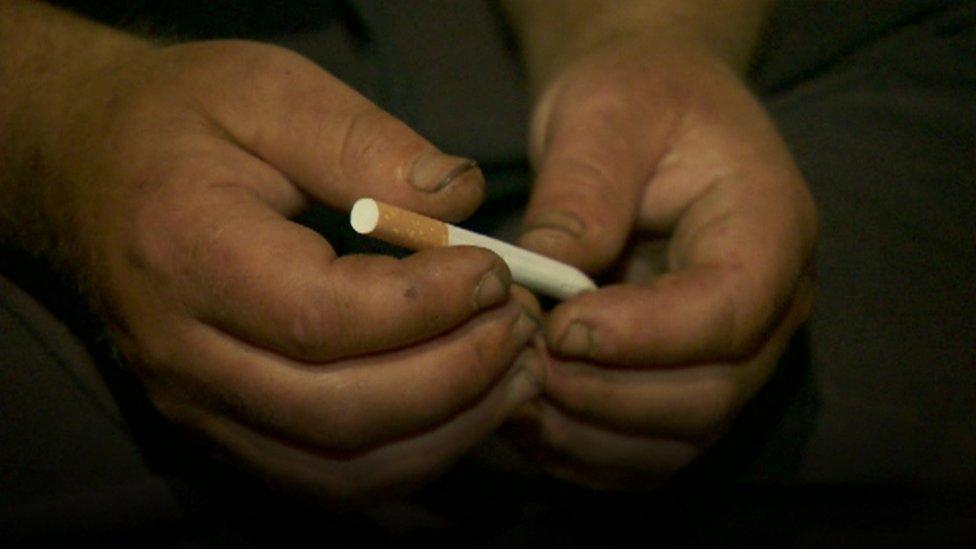
James told BBC News NI that there "doesn't seem to be any help out there"
But he says trying to get through the waiting list for the heroin substitute proscribing programme is like "constantly hitting a brick wall".
"It's the same story every single week, it's 'you're near the top of the list, it's not going to be long'.
"In April they said it was going to be two to three weeks," James added.
However, four months later he is still waiting and "getting nowhere fast".
"There doesn't seem to be any help out there. I've seen people take their own lives because of it,
"Some that have run up debts that they can't pay, they think there is no light at the end of the tunnel."

North Belfast councillor Paul McCusker said that when addicts like James took steps to seek help, it appeared that a "door was being closed" on them and that can have a "dramatic effect on a person's recovery".
"The key thing for anyone that is suffering a heroin addiction is early intervention, and we don't have that."
He added: "James does tell that story of waiting every day on that phone call or letter, whether he is going to get the help or support he needs.
"It's a matter of life or death quite often. He speaks about [his fear that] his next hit could be his last hit.
"That is ridiculous to live every single day like that."
'Risen significantly'
The councillor said he has been calling on the Belfast Health Trust to take action on the waiting list for more than 18 months.
A spokesperson for the Belfast Health Trust said that if demand continues to grow "our capacity to meet this level of need is limited".
It is difficult to get a clear picture of the number of heroin users in Northern Ireland, with many users of the illegal drug not accessing support services.
"Anecdotally it is accepted across all sectors, including health and criminal justice that injecting drug misuse has increased in Belfast," the Public Health Agency (PHA) said in a statement to the BBC.
There are two needle exchanges in Belfast city centre, where heroin users can exchange used needles for new ones.
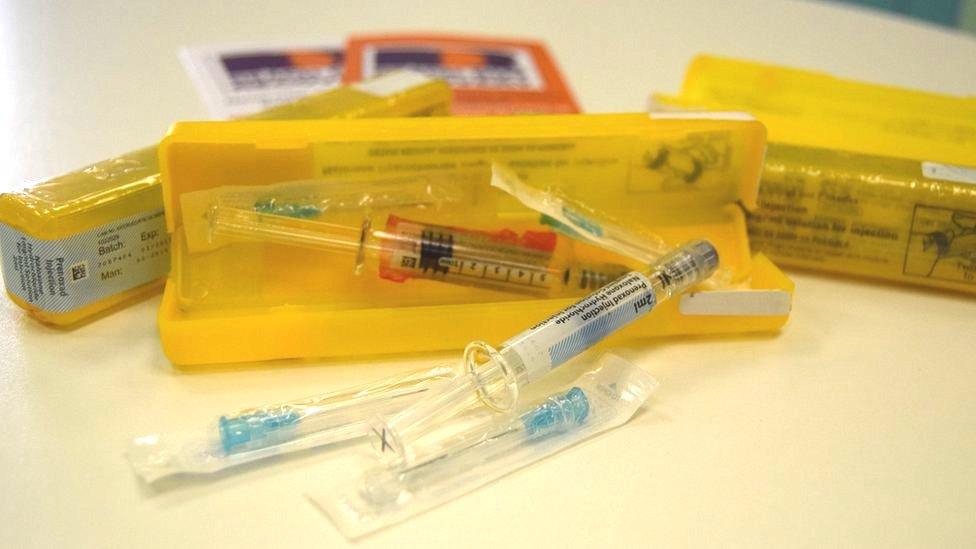
Naloxone can reverse a heroin overdose
The exchanges have been open for 17 years and the number of people accessing the service has risen significantly in recent years.
In the past four years, it has gone up by 82%, from 7,500 visits to almost 14,000.
The PHA said it and the Health and Social Care Board are working to increase the number of needle exchange services in areas identified as having increased need and demand, bringing the total in Northern Ireland to between 28 and 33.
The PHA also added that many people use the service regularly, so the number of users will be "significantly lower" than the number of visits and that the service is also used by people who inject steroids or tanning solution.
Naloxone is a potentially life-saving drug, which can reverse the effects of a heroin overdose to allow the user to get medical help.
Heroin users, their families and those who work with users can now be supplied with it.
In the Belfast Health Trust area, there were 526 instances in which Naloxone was supplied in 2017/18 compared to being supplied 95 times the previous year.
- Published2 July 2018
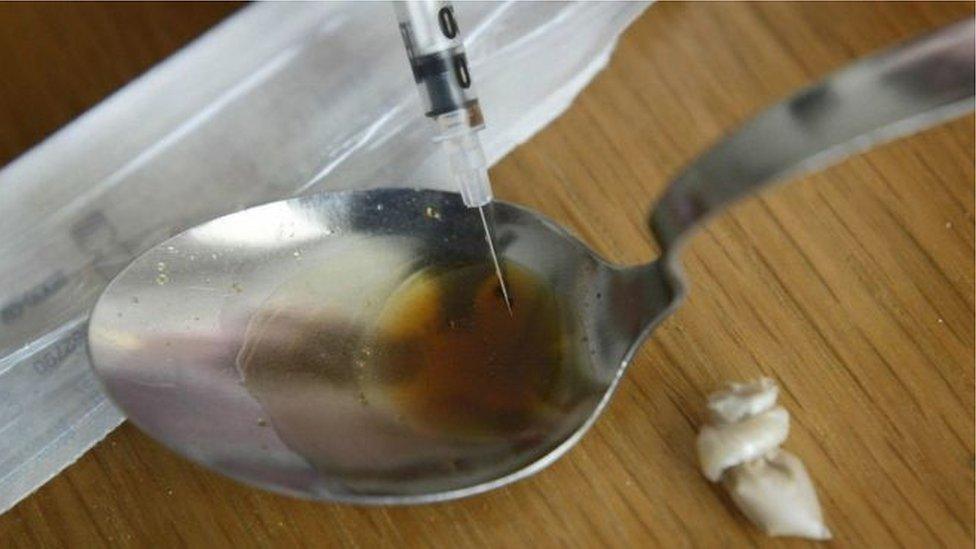
- Published21 September 2017
